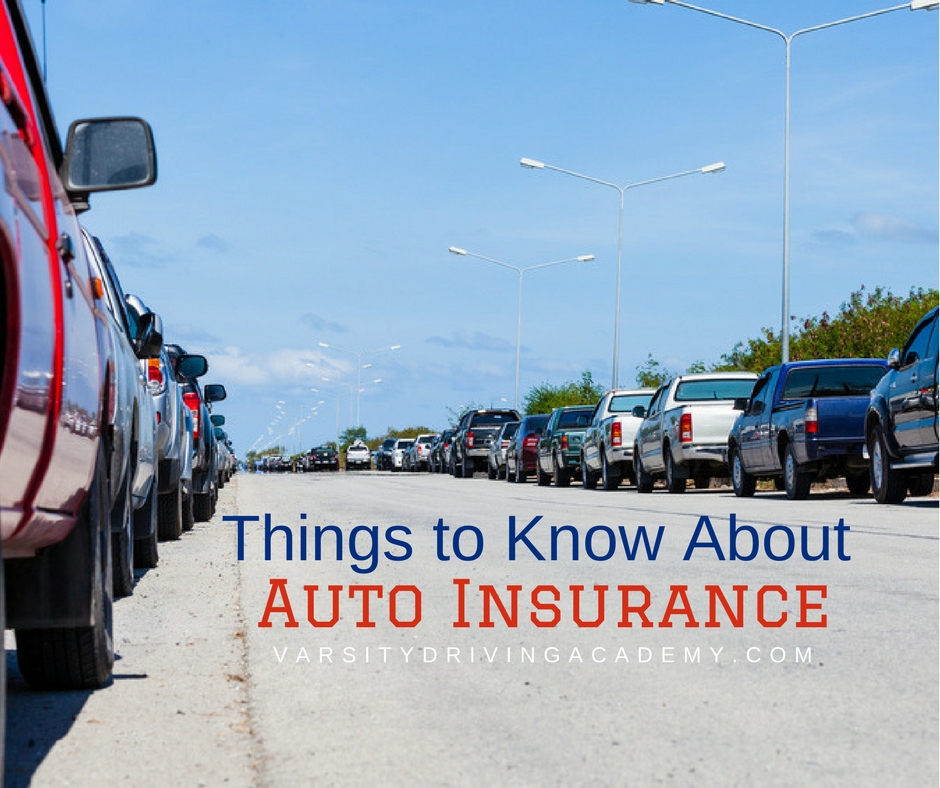Things to Know About Auto Insurance
Driving is known as one of the first big steps we take in life. Everything that goes into completing this stage of life will prepare us for other stages to come. We must learn a new skill, learn to deal with the DMV, learn how to budget for a big purchase, and find the right auto insurance for us. Insurance is as important as the car you buy though few treat it as such. Insurance is not only meant to keep us prepared for an accident but also help protect our first real investment in a vehicle. With so much at stake, we should all know how to find the right auto insurance. There are many different companies that offer auto insurance but it’s more than just the price that is important when finding the right coverage.
Things to Know About Auto Insurance
The definition of “jargon” is special words or expressions that are used by a particular profession. Auto insurance jargon is important for us all to know and that knowledge will help you find the right auto insurance for you.
- Liability Coverage– This coverage will pay for any damage to a vehicle or persons that are a direct result of your actions.
- Collision Coverage– If there is any damage to your own vehicle, this coverage will help pay for that. If your car is totaled* your insurance will pay out the total value of your car.
- Comprehensive Coverage– If there is damage to your vehicle that is not the result of an accident with another vehicle, weather, animal, theft etc. comprehensive coverage will help you.
- Personal Injury Protection– When you get an accident, you may end up with injuries of your own. Personal Injury Protection will help cover any medical bills you or your passengers receive due to an accident.
- Uninsured/Underinsured Motorist Protection– Most states require everyone to have auto insurance but not everyone follows that law at all times. In the event that you’re in an accident with someone who is not covered, this protection will help cover the costs.
- Totaled– Totaled is a term insurance companies use for when your vehicle’s damage costs more to fix than your car is worth.
State Requirements
Most states have laws that require drivers to have a specific amount of auto insurance. These laws differ state to state. In California, the law requires a minimum for Liability Coverage totaling $15,000 for injury/death to one person, $30,000 for injury/ death to more than one person and $5,000 for damage to property. While these numbers sound expensive, getting nothing but the state requirements is usually the cheapest route to go. The problem is, the cheapest insurance doesn’t always mean the best.
What Determines Cost
Obviously, the features and amount of coverage will determine the cost of your insurance which usually is explained in terms of a 6-month contract. However, there are more personal aspects that will determine costs of auto insurance. How you use your car will factor into your costs. Most importantly, how often you use your car will directly affect the cost of your insurance. The more you use your car the higher the chances of an accident, which also means the higher you pay for insurance.
Payout Limits
It’s important to know the payout limits your coverage offers. For example, you have the state minimum of $15,000 for bodily injury/death to one person in your plan. That means if the costs for bodily injury go over $15,000 you will be expected to pay the rest.
Deductibles
“Deductibles” is another term often associated with insurance and can make things get a little confusing. A deductible is not the same as a payout limit meaning anything you pay for bodily injury is not part of our deductible. Instead, a deductible is part of the collision and comprehensive coverage. A deductible is a cost that you’re obligated to pay towards the cost of repairs to a vehicle. Your deductible can also be a factor in determining your monthly cost for insurance. In most cases, the lower your monthly bill, the higher your deductible.
Budgeting
Auto insurance is often seen as an unnecessary expense and only purchased because the law states you need to it to drive. However, there is more to budgeting than looking at the here and now. One must also factor in unforeseen expenses and getting in an accident is a major unforeseen expense. When you budget for insurance, make sure you consider not only the monthly cost you can afford but how much extra you can throw into that budget. The worst case scenario would be to get in an accident and then go into drowning debt trying to pay your way out.





